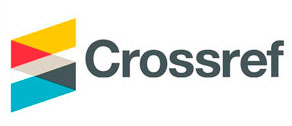THE FORMATION OF "SOFT" MANAGEMENT IN THE CONTEXT OF MODERN MANAGEMENT STRATEGIES.
Abstract
The article is devoted to the versatile study and analysis of basic rules for the "soft" management functioning
in the context of the current developments done by authors-researchers in the field of management. The purpose of the article is to study the process of the "soft" management development as one among the existing modern theories of management, to find out the causes of its emergence, relationships with other scientific theories and positions in society. It has been determined that the current realities of developing democratic principles, creativity, high intelligence and innovative actions in management form a cohesive team with the vector influencing the result, since our epoch requires rather the principles of humanity than total control.
It was found out that the special feature and requirement of the formation of "soft" management in the context of managerial strategies are the requirements of the present, that is, the reality that exists at the moment, the reality with the needs of time and its requirements. Accordingly, the relevance of this study is due to the urgent public need for the identification and application of modern management types, tools within the framework of the socio-philosophical paradigm. So, our research is directed at studying this content in the writings of philosophers, sociologists, economists, historians, thinkers of the past and modern, managers- theorists and practitioners.
It has been established that "soft" management or "soft management" is a fairly new and adequate method of management in the era of ideas, talent, creativity, creative inspiration, humanness, etc. As one of the modern tools, methods, concepts, technologies it manages through organizational culture, corporate values, interconnections, organizational conditions, organizational space, etc.
The influence of industrial democracy is assessed: working in industry with people, we realize that they are working not only for the sake of money and that if you want to stimulate them, money is not the most effective tool. To stimulate people, we need to make them family members and treat them like its respected members. Of course, in our homogeneously national country this is probably easier to do than elsewhere, but with a certain level of culture of the population it is still possible.
Key words: management, "soft" management, the formation of "soft" management, R. Owen, Maverick, A. Neill "Summerhill", "Blue Ocean Strategy", Akio Morita, Lee Iacocca.

